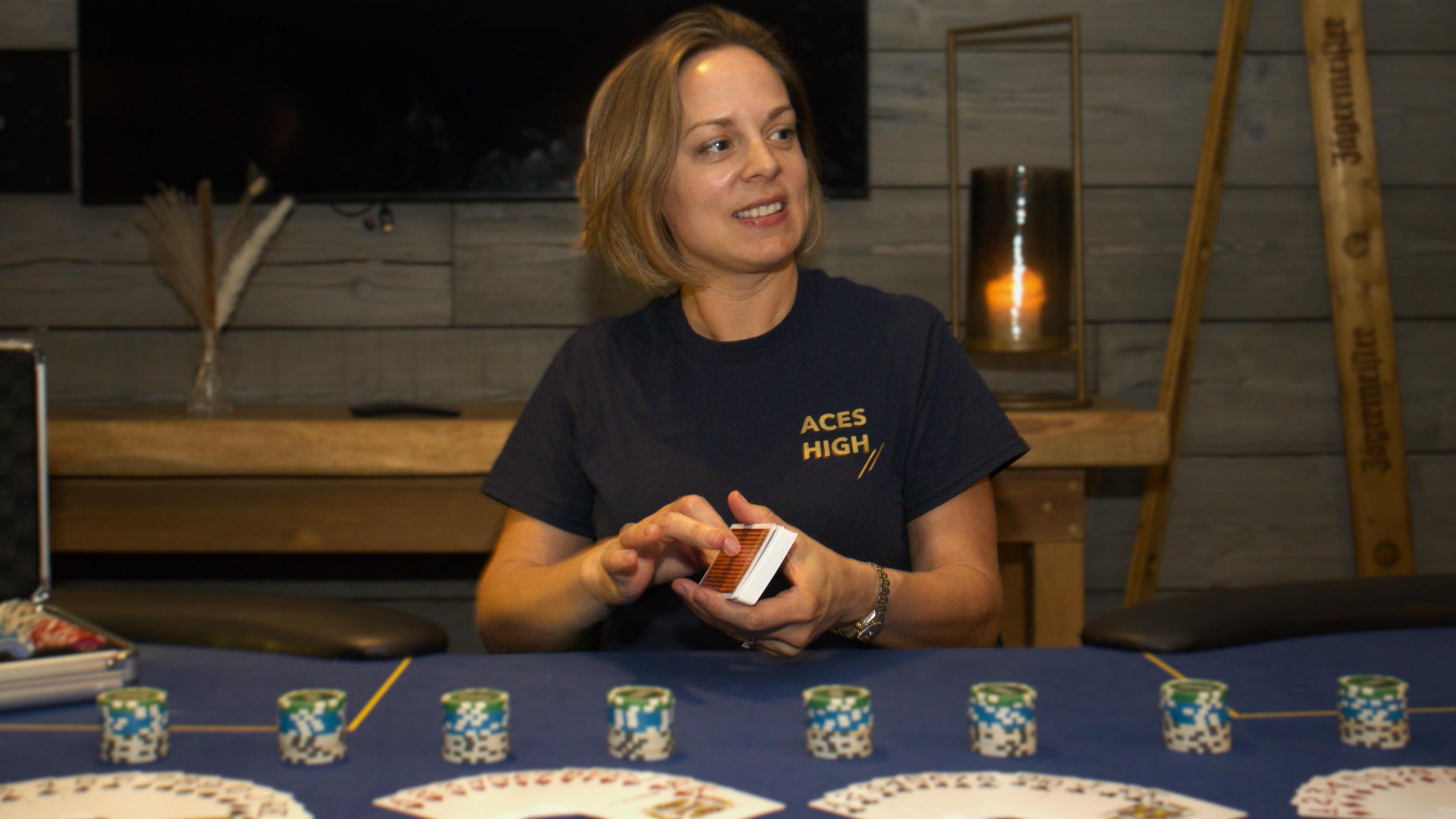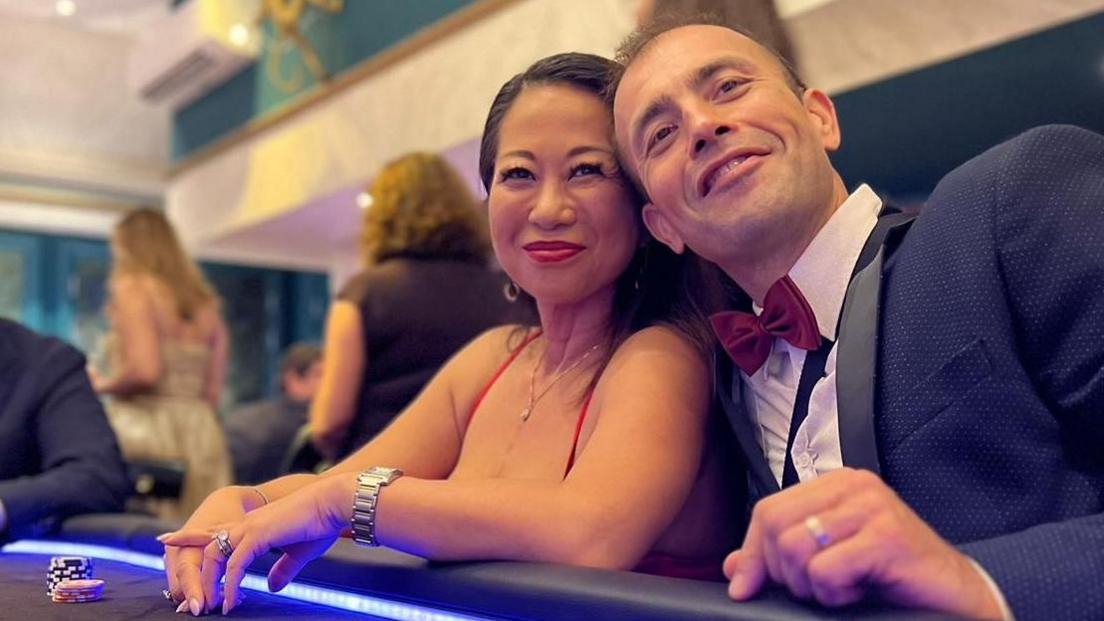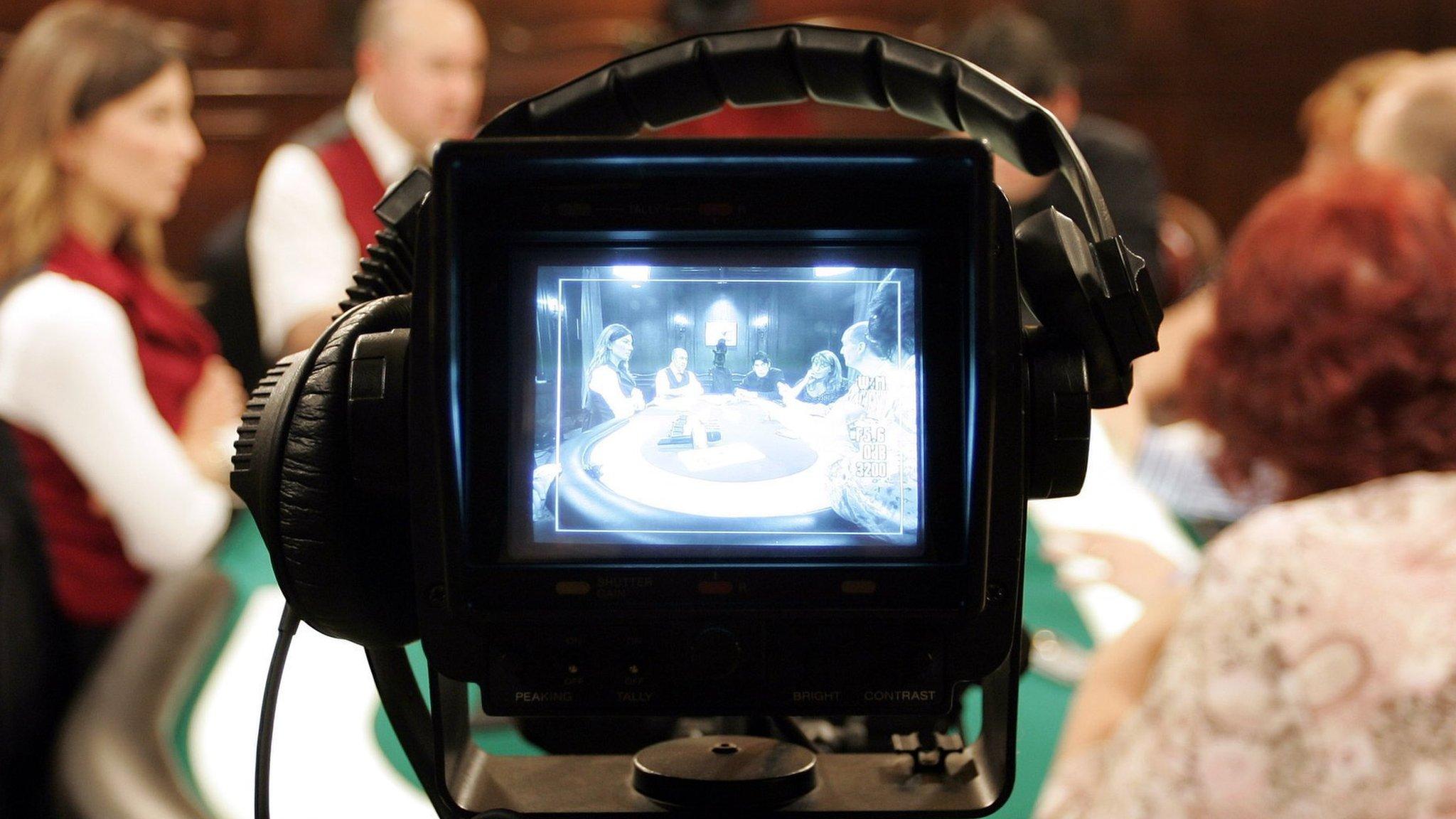'The poker table is a proxy for the boardroom'

Poker is played around the world
- Published
From casino to kitchen table, the world of poker can bring high stakes and rising heart rates. But for three London women, they explain how the popular card game offers them so much more.
"The poker table is a proxy for the boardroom table," according to Londoner Jo Living.
The 42-year-old, from Islington, began playing the game eight years ago and went on to found a firm where people learn how to use the skills of poker in their work life.
"Everyone thinks poker is about bluff and faking it. It really isn't.
"It's about negotiation and assertive communication."

Jo Living teaches people how to use the skills of poker in their work life
Her business, Aces High London, runs simulated chip poker games as corporate team events across the capital.
These are designed to test an individual and team's approach to decision-making, risk-taking and re-evaluating decisions as they go, she explained.
"It's an artificially stressful environment to reflect on the fight-or-flight response," she said.
'It's not about bravado'
"It's a microcosm of how people show up in the boardroom. Poker is a contact sport. You are eye to eye with your opponents. It takes two of you.
"There's a conversation happening - you're trying to bet the other person off the pot.
"It's about listening intently to their tells. Listening is a huge theme - it's not about bravado, bluff or brag."
Ms Living added she wants people not to lose sight of their personal values when playing, but to use the skills of the game to their advantage.

Alex O'Brien says poker can help women to be more assertive
Alex O’Brien, a semi-professional poker player and science writer from Highbury, also believes there is much to learn from poker away from the playing table.
She sees the game as a highly cerebral, strategic, multi-dimensional puzzle which offers many transferable skills.
'Confidence in risk-taking'
"Poker helps women be more assertive. I’m a massive ambassador for women in poker.
"The confidence poker instils is invaluable. You have a level of confidence in risk-taking."
She thinks embracing the uncertainty in poker allows players to move forward and prosper.
"Women are often socialised to avoid risks, because we’re treated more harshly than our male counterparts if we mess up," she said.
"The poker mindset helps with assessing risk versus reward. It’s really helpful.
"You start to bet on yourself. I’ve seen the change in women becoming more willing to take bold, informed action."

Line Young Peteri has taught her children to play poker
These skills can be put into action from childhood, believes Line Young Peteri, who has been playing poker for 18 years.
"When you play poker, you can say you play the cards, but you can also say you can play the table.
"It means that you begin to notice how other people are playing, and you begin to predict.
"I think it’s very important for the kids to learn this."
Poker's popularity
Poker is one of the most popular card games in the world, with the best-known variety called Texas hold'em
The variation involves two hidden cards and five community ones, with each player looking for the best five-card hand from any combination of the seven cards
The game exploded in popularity thanks to the introduction of the "hole-card camera", which made it spectator-friendly and good for television
It has been traditionally dominated by men but many women are successful professional or semi-pro poker players, including London's own Victoria Coren-Mitchell
In November, the city played host to the Women's Winter Festival, a four-day poker event at The Hippodrome Casino
Ms Young Peteri, from Newham, says her 13-year-old son has become "extremely good" at the game and she is also teaching it to her nine-year-old daughter.
The says the biggest skill she teaches her children is moderation, and managing their wins and losses, rather than "going crazy" and losing their winnings.
This is known as bankroll management.

All three women said the game strengthened communication skills
"Repeated failure in a controlled environment creates resilience," she says.
"If you treat failure as feedback, it creates the ability to bounce back stronger.
"You accept loss as a part of life."
Listen to the best of BBC Radio London on Sounds and follow BBC London on Facebook, external, X, external and Instagram, external. Send your story ideas to hello.bbclondon@bbc.co.uk, external
- Attribution
- Published22 September 2022

- Published21 April 2014